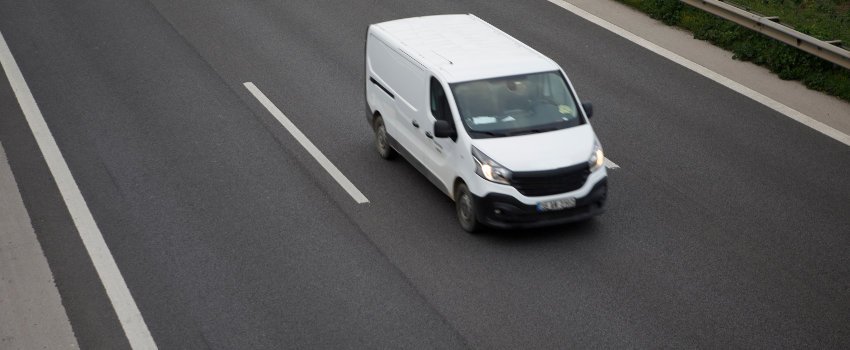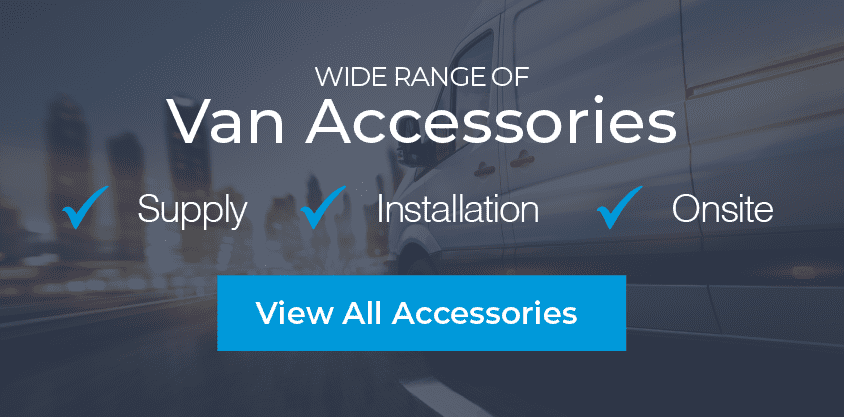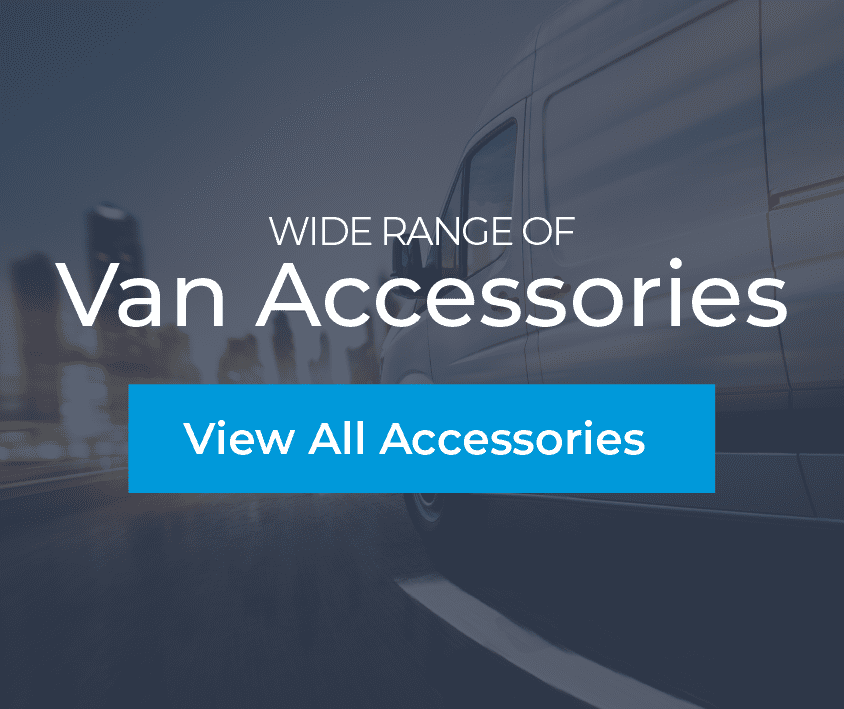A comprehensive guide on ways to pay for a new van
We know that buying a van is always a big commitment, and for many customers a binding purchase isn’t even always a practical one to begin with, even with the very best new van deals. That’s why at Van Discount, we take care to offer a number of ways to pay for our vans, whether it’s a humble Citroen or a hardy curtainside van. These range from hire purchase, in which you spread the cost of your van over several months before you buy it, all the way to contract hire, in which you only borrow the van for a set period of time. We’ve summed up these options on our Finance page, but we’ve put this handy post together for those looking for more detail about what they involve, and how they can help you.
Now, we should start by saying that when we refer to a finance company that finance company is not Van Discount. We are what is referred to as a broker, acting as the intermediary between you, the customer, and the third-party company who actually provides the finance.
Hire Purchase
Ideal for:
- Manageably financing the purchase of a van
In brief:
- Initial payment of agreed deposit (variable)
- Fixed monthly repayments (subject to your credit score and other factors)
- Optional final “balloon payment” to reduce these regular monthly costs
- Once this is paid, you take ownership of the van
In detail:
A hire purchase is essentially a cost-effective alternative to buying a van outright. Rather than paying significant upfront costs, a hire purchase allows you to spread these costs out over the course of several months or years, making it easier on the wallet and thus making the purchase of a vehicle feasible for those who might not otherwise have been able to afford them.
The initial payment of an agreed deposit is dependent on your credit score, as well as several other factors, and thus can significantly vary between different customers. This initial payment also includes the VAT on the vehicle’s full purchase price – but if you’re VAT registered, as many of our customers are here at Van Discount, this is effectively a zero-deposit, as you can reclaim the VAT.
Once this initial amount is settled, you can then finance the van’s balance over a suitable period with fixed monthly repayments. Your credit score rating again plays a major part in determining the size of these monthly repayments, which are also governed by how much you’re borrowing and for how long. However, these payments are not subject to VAT.
If you agree to pay what’s known as a “balloon payment” – basically a lump sum – at the end of the hire period, these monthly payments can be reduced, as you’re still ultimately paying off the difference. At the end of the hire period and once all this is paid off, you become the new owner of the van.


Finance Lease
Ideal for:
- Flexible working conditions, or where permanent ownership of the van is not required
In brief:
- A finance company owns the vehicle, and you rent it from them with lease rental payments
- Initial payment of agreed deposit (variable)
- Fixed monthly repayments, plus VAT (these are subject to your credit score and other factors)
- Optional final “balloon payment” to reduce these regular monthly costs
- Once this is paid, you can then sell the van on behalf of the finance company (and take 95% of the proceeds) or enter into a Secondary Rental Agreement
In detail:
Finance leasing is different to Hire Purchase. The initial payment is still variable and subject to your credit rating, and tends to constitute anywhere between 3 to 12 months worth of fixed payments, depending on your preference and circumstances. Then, the subsequent fixed monthly repayments are plus VAT. This results in lower upfront costs, as the VAT is spread over the life of the agreement. The monthly payments DO NOT include maintenance and breakdown cover, although this can be arranged at extra cost.
As with Hire Purchase, you’ve still got the option to make a final balloon payment at the end of the leasing period, which is paid to the finance company. After that, you have two options:
Option 1: Sell the van
You can sell the van on to a third party on behalf of the finance company. This will allow you to retain 95% of the proceeds, with only 5% going back to the company. (This split can vary when using other finance companies – sometimes it’s 90-10, others 99-1.)
Option 2: Enter a Secondary Rental Agreement
If you’re not quite ready to give up the van for whatever reason, you can enter into a Secondary Rental Agreement. This allows you to continue renting the vehicle as you continue to pay the same lease rental payments as previously, except now on an annual rather than monthly basis. These are referred to as peppercorn payments. You can keep paying these indefinitely, or end the leasing period whenever you please. Once that happens, you’ll sell the van and keep 95% of the proceeds, as we outlined above.
Depreciation
As has probably occurred to you already, the factor of depreciation plays a major part in finance leasing. If you’ve closely looked after the van for the duration of its leasing period, keeping in good condition and free from any scratches or damage, it’ll come to be worth more when you sell it. In other financial agreements (such as contract hire, which we’ll come to in a moment) any damage beyond normal wear and tear would require you to pay additional charges to rectify. But one of the major advantages of finance leasing is that since you’re the one who’s ultimately selling the van, the financial repercussions are a lot less strict and clearly defined. It’s one of the many reasons why finance leasing is so flexible, and such a favoured choice for those who need a van for regular work but who don’t want to commit to buying one.
Contract Hire
Ideal for:
- Temporarily borrowing a van for a clearly-set period of time, or if you already know your strict usage parameters
In brief:
- Pay initial deposit (variable, equivalent to anywhere from 3 to 12 months’ worth of monthly payments)
- Then pay a series of fixed payments for a set amount of time
- No balloon payments
- Return the van at the end of the hire period
In detail:
This option isn’t as flexible as the hire purchase or finance leasing options, but can still provide good value for traders with very clear parameters for their usage. After paying the initial deposit – which, as ever, is subject to your credit rating – the monthly payments will then cover the usage of the van, including any accumulated mileage up to an agreed allowance, as well as road tax. There is also the option of adding maintenance cover.
These payments allow you to take control of the van for a fixed period, which in our experience tends to be about three years or so. This means the van is yours to drive but is not yours to own, and at the end of the hire period you return the van to the finance company. With this type of hire you don’t have the option to make balloon payments, so the monthly payments will stay the same.


As for the mileage restrictions, it’s also worth noting that if you return the van well under the agreed mileage, unfortunately you don’t get any money back. Conversely, you do get charged if you exceed it. You’re also liable for any damage to the van beyond reasonable wear and tear. For these reasons, contract hire is a useful option if you have a firm plan of where and when you’re going to use it, and you have no interest in purchasing one outright. Generally our customers find that the increased flexibility in finance leases is more practical, but contract hire is still worthy of consideration, as for certain customers it can be more helpful for tax perspectives.
Which finance option should I choose?
Here at Van Discount we’re happy to explain the various options and how they might apply to you, but for the actual decision making process we’d always strongly advise consulting your accountant. As we mentioned above we are a broker, not a finance company, and we don’t provide the finance in question. While your first choice might seem like the best one on the surface, you may find that your accountant advises differently, as other options might provide tax benefits that aren’t obvious at first glance.
Whatever you end up choosing, you can always count on Van Discount to be the place to find great new van deals. Our fantastic range of stock includes models from leading manufacturers such as Ford and Peugeot. Why not take a look around and see what one catches your eye? Alternatively, you can always give us a ring on 01282 872 530, and see what we can do for you!









